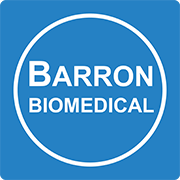Research
Tumor samples for research are usually obtained without standardized procedures and at uncontrolled times after tumor resection. As a consequence, several exogenous factors modify the molecular biology of the cancer cells on a way that varies among samples; especially the hypoxia and the temperature decrease of the resected tumor outside the body alter the gene expression and other molecular features on a variable way. For this reason, a large amount of the targets and biomarkers that have been discovered so far, have resulted from the distorted biology of such tumor samples, they have a poor reproducibility and therefore have no medical relevance1,2. For this problem we have developed solutions on two levels:
-
Sample acquisition and storage. We have developed a method for the acquisition and storage of tumor samples, which eliminates the majoriy of the exogenous factors and standardize the few remaining ones. In this way the research samples conserve for a long time the genuine molecular biology that the tumor cells had in the patient's body. In a series of experiments, tumor samples obtained with our method generated highly qualitative and reproducible DNA, RNA, proteins and histological sections, even after seven years of storage.
-
Target Discovery and Biomarker research. We have developed a strategy for the discovery of targets and biomarkers based on a high-quality biobank. The samples are acquired and stored according our method (s. above). The patient parameters to be collected are chosen to describe the medical condition to be addressed by the target or the biomarker. The molecular data obtained from the samples and their correlation with the patient data can lead to the discovery of genuine targets and biomarkers with the highest reproducibility and medical accuracy.
- Alymani NA, Smith MD, Williams DJ & Petty RD (2010) Predictive biomarkers for personalized anti-cancer drug use: discovery to clinical implementation. Eur J Cancer 46: 869-879.
- Maxim B et al. (2012), Impact of Collection and Storage of Lung Tumor Tissue on Whole Genome Expression Profiling. JMD 12(2): 140-148.

